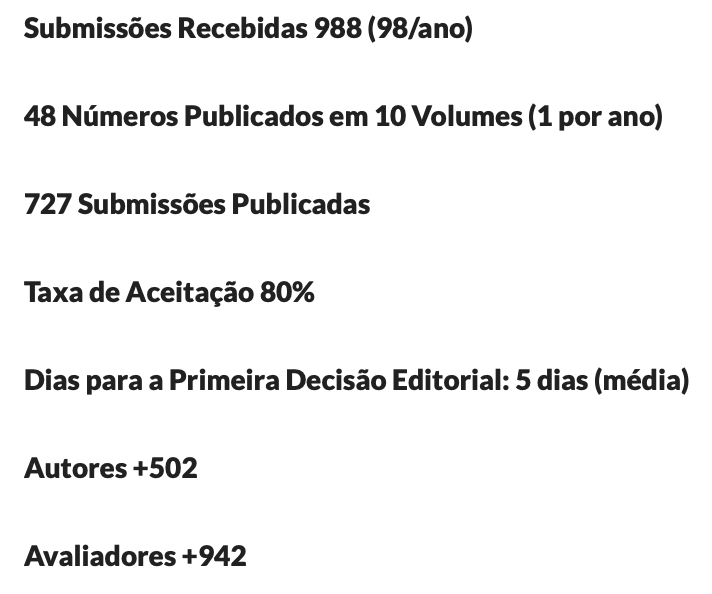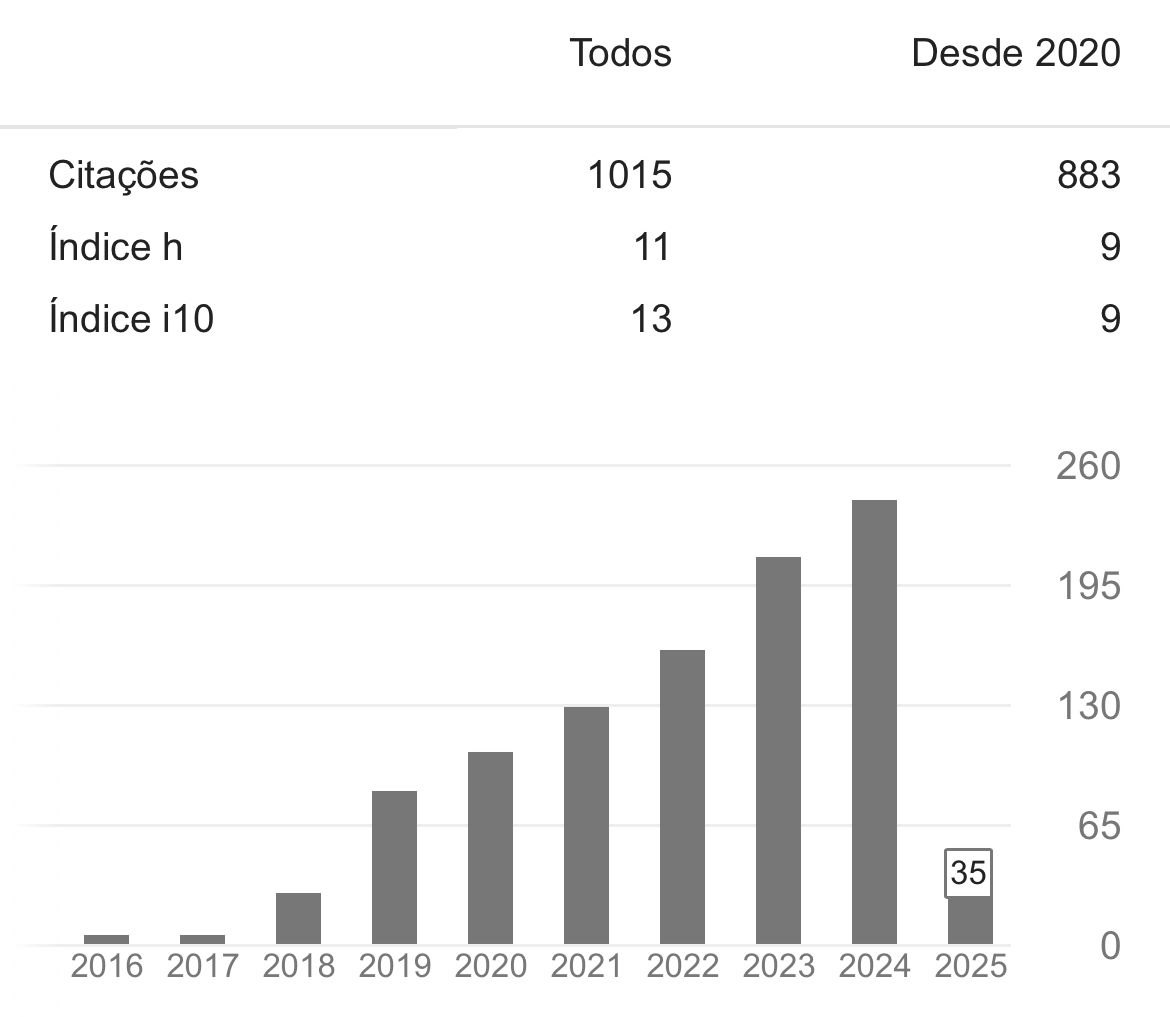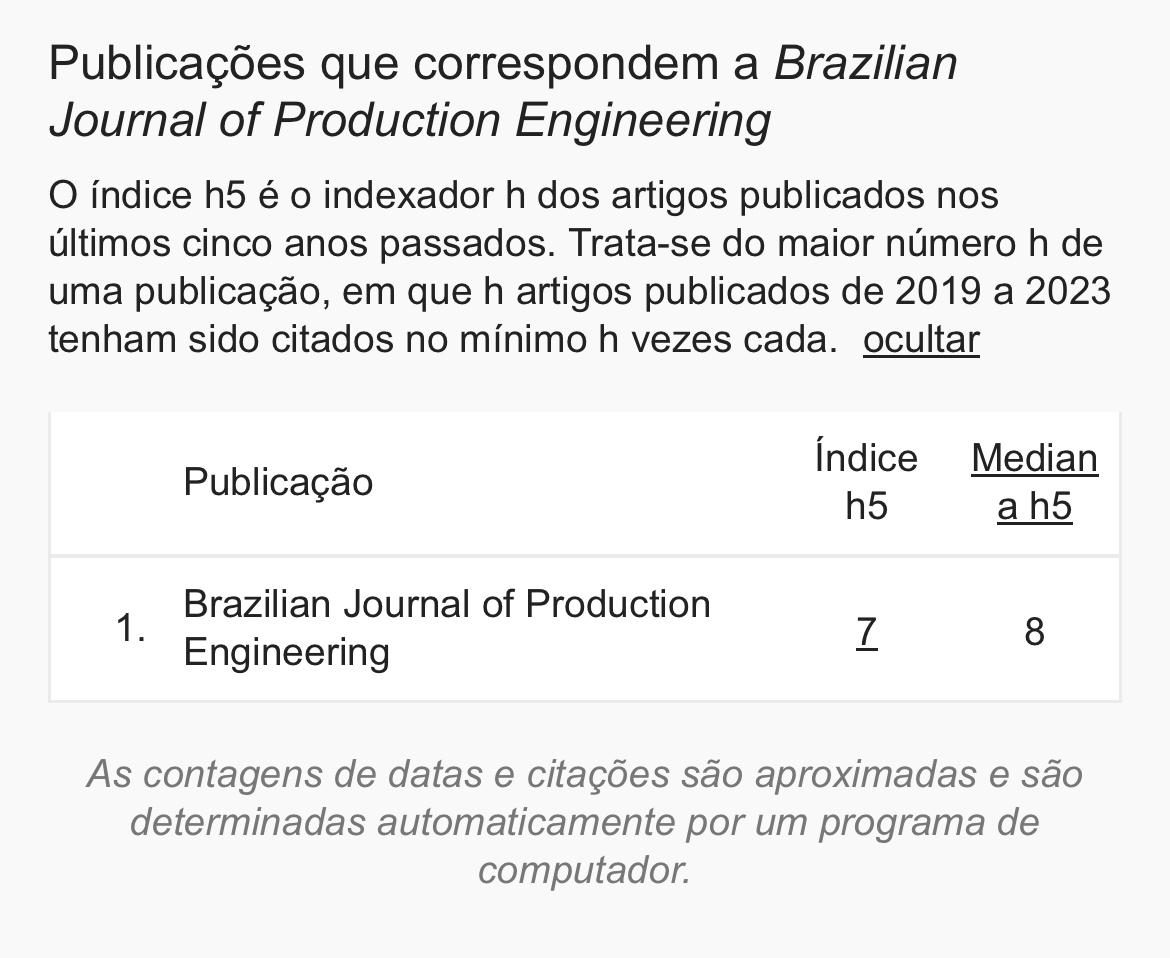IDENTIFICAÇÃO DE FATORES CRÍTICOS DE SUCESSO PARA GERENCIAMENTO DE RESÍDUOS DA CONSTRUÇÃO CIVIL
IDENTIFICATION OF CRITICAL SUCCESS FACTORS FOR THE MANAGEMENT OF CONSTRUCTION WASTE
Palavras-chave:
Gestão de resíduos; Construção civil; Fatores críticos de sucesso.Resumo
A geração de resíduos da construção civil é um problema que traz impactos negativos de abrangência ambiental, econômica e social. Nesse sentido, é importante que esses resíduos sejam bem gerenciados com o intuito de mitigar os impactos causados. Para tanto, é necessário que se entendam os principais fatores que são críticos para o gerenciamento desses resíduos. Assim, o objetivo do presente estudo foi de identificar os principais fatores críticos de sucesso (FCS) para o gerenciamento de resíduos da construção civil na cidade de Caruaru-PE, que foi a cidade objeto desse estudo. Com vistas a atender esse objetivo, realizou-se uma revisão da literatura para levantar os principais FCS apresentados e formularam-se hipóteses acerca dos mesmos. Por conseguinte, aplicou-se um questionário com estudantes e profissionais da área da construção civil para avaliar a percepção deles sobre os FCS levantados na literatura. Dos onze FCS levantados, os dados coletados mostraram indícios de que apenas nove deles eram verificados na prática. Esse estudo permitiu, ainda, que as empresas da construção civil desenvolvessem planos de ação para gerenciar adequadamente esses resíduos, que o governo fiscalizasse mais de perto às atividades desenvolvidas e que a população cobrasse melhorias na gestão.
Downloads
Referências
Adams, K., Osmani, M., Thorpe, T., & Thornback, J. (2017). Circular Economy in construction: current awareness, challenges and enablers. Water Resources Management, 170, 15-27. https://doi.org/10.1680/jwarm.16.00011
Associação brasileira de normas e técnicas. NBR 10.004: Resíduos Sólidos. Rio de Janeiro, 1, 2004.
Aaker, D., Kumar, V., & DAY, G. (1995). Marketing Research (5ª ed., s.Vol).New Jersey: John Wiley & Sons.
Bouzon, M., Govindan, K.,& Rodriguez, C. (2018). Evaluating barriers for reverse logistics implementation under a multiple stakeholders' perspective analysis using grey decision-making approach. Resources, Conservation and Recycling, 128, 315-335. https://doi.org/10.1016/j.resconrec.2016.11.022
Brasil (2010, 2 de agosto). Lei n. 12.305, de 2 de agosto de 2010. Política Nacional dos Resíduos Sólidos. Brasília: Diário Oficial da União, seção 1.
Conselho Nacional do Meio Ambiente (2002, 05 de julho). Resolução n. 307, de 05 de julho de 2002. Regras para o gerenciamento de resíduos da construção civil. Brasília: Diário Oficial da União, seção 1.
Caíado, N., Guarnieri, P., Xavier, L., Helenade, L., & Chaves, G. (2016). A characterization of the Brazilian market of reverse logistic credits (RLC) and an analogy with the existing carbon credit market. Resources, Conservation and Recycling, 118, 47-59.https://doi.org/10.1016/j.resconrec.2016.11.021
Chen, Z., Li,H., & Wong, C. (2002). An application of bar-code system for reducing construction wastes. Automation in Construction,11(5), 521-533.https://doi.org/10.1016/S0926-5805(01)00063-2
Cronbach, L. (1951). Coefficient alpha and the internal structure of tests. Psychometrika, 16, 297-237.https://doi.org/10.1007/BF02310555
da Rocha, C., & Sattler, M. (2009). A discussion on the reuse of building components in Brazil: An analysis of major social, economical and legal factors. Resources Conservation and Recycling,54, 104-112.https://doi.org/10.1016/j.resconrec.2009.07.004
Davis, F. B. (1964). Educational measurements and their interpretation ( s. ed., s.Vol). California: Wadsworth Publishing Co.
da Paz, D., Lafayette, K., Holanda, M., Sobral, M., & Costa,L. (2018). Assessment of environmental impact risks arising from the illegal dumping of construction waste in Brazil. Environment, Development and Sustainability, s.v, 1-16.https://doi.org/10.1007/s10668-018-0289-6
de Melo, A., Gonçalves, A., & Martins, I. (2011). Construction and demolition waste generation and management in Lisbon (Portugal). Resources, Conservation and Recycling,55, 1252-1264.https://doi.org/10.1016/j.resconrec.2011.06.010
Deus, R., Battistelle, R., & Ribeiro, G. (2017).Scenario evaluation for the management of household solid waste in small Brazilian municipalities. Clean Technologies and Environmental Policy,19(1), 205-214.https://doi.org/10.1007/s10098-016-1205-0
Dias, P., Machado, A.,Huda, N., & Bernardes, A. (2018).Waste electric and electronic equipment (WEEE) management: A study on the Brazilian recycling routes. Journal of Cleaner Production, 174, 7-16. https://doi.org/10.1016/j.jclepro.2017.10.219
Doane, D. P., & Seward, L. (2015). Applied Statistics in Business and Economics (5 ed., s.Vol.). New York: McGraw-HillEducation.
Esa, M., Halog, A., & Rigamonti, L. (2017). Strategies for minimizing construction demolition wastes in Malysia. Resources Conservation and Recycling,120, 219- 229.https://doi.org/10.1016/j.resconrec.2016.12.014
Forbes, C., Evans, M., Hastings, N., & Peacock, B. (2011). Statistical Distributions (4 ed., s.Vol.).New Jersey: John Wiley & Sons.
Fornell, C., & Larcker, D.F. (1981). Evaluating structural equation models with unobservable variables and measurement error. Journal of Marketing Research, 18(1), 39-50.https://www.jstor.org/stable/3151312
Fowler, F. J. (2002). Survey Research Methods (3 ed.,s.Vol.).California: Sage.
Fagnani, E., & Guimarães, J. (2017). Waste management plan for higher education institutions in developing countries: The Continuous Improvement Cycle model. Journal of Cleaner Production, 147, 108-118.https://doi.org/10.1016/j.jclepro.2017.01.080
Ferri, G., Chaves, G., & Ribeiro, G. (2015). Reverse logistics network for municipal solid waste management: the inclusion of waste pickers as a Brazilian legal requirement. Waste Management, 40, 173-191.https://doi.org/10.1016/j.wasman.2015.02.036
Giannetti, B. F., Bonilla, S. H., & Almeida, C. (2013).An emergy-based evaluation of a reverse logistics network for steel recycling. Journal of Cleaner Production, 46, 48–57.https://doi.org/10.1016/j.jclepro.2012.05.024
Guarnieri, P., & Streit, J.A. (2015). Implications for waste pickers of Distrito Federal, Brazil arising from the obligation of reverse logistics by the national policy of solid waste. Latin American Journal of Management for Sustainable Development, 2(1), 19-35. https://doi.org/10.1504/LAJMSD.2015.067468
Guarnieri, P., Sobreiro, V., Nagano, M., & Serrano, A. (2015).The challenge of selecting and evaluating third-party reverse logistics providers in a multicriteria perspective: A Brazilian case.Journal of Cleaner Production, 96, 209–219.https://doi.org/10.1016/j.jclepro.2014.05.040
Guarnieri, P., Silva, L., & Levino, N. (2016). Analysis of electronic waste reverse logistics decisions using Strategic Options Development Analysis methodology: A Brazilian case. Journal of Cleaner Production, 133, 1105-1117.https://doi.org/10.1016/j.jclepro.2016.06.025
Guarnieri, P., Streit, J.A., & Batista, L. (2020). Reverse logistics and the sectoral agreement of packaging industry in Brazil towards a transition to circular economy. Resources Conservation and Recycling. 153, 104541.https://doi.org/10.1016/j.resconrec.2019.104541
Hadjieva-Zaharieva, R., Dimitrova, E., & Buyle-Bodin, F. (2003). Building waste management in Bulgaria: challenges and opportunities. Waste Management, 23(8), 749-761.https://doi.org/10.1016/S0956-053X(03)00037-0
Jabbour, A.,Jabbour, C., Sarkis, J., & Govidan, K. (2014). Brazil s new national policy on solid waste: challenges and opportunities. Clean Technologies and Environmental Policy, 16 (1), 7-9.https://doi.org/10.1007/s10098-013-0600-z
Jaillon, L., & Poon, C.S. (2008). Sustainable construction aspects of using prefabrication in dense urban environment: a Hong Kong case study. Construction Management and Economics,26 (9), 953-966.https://doi.org/10.1080/01446190802259043
Karavezyris, V. (2007). Treatment of commercial, construction and demolition waste in North Rthine-Westphalia: policy-making and operation options. Waste Management,25 (2), 18-39.https://doi.org/10.1177/0734242X07075249
Kinnear, T.C., & Taylor, J. R. (1979).Marketing research: an applied approach (s.ed., s. Vol.). New York: McGraw-Hill Education.
Klepa, R., Medeiros, M., Franco, M., Tamberg, E., Farias, T., Paschoalin Filho, J., Berssanet, F., & Santana, J. (2019).Reuse of construction waste to produce thermoluminescent sensor for use in highway traffic control. Journal of Cleaner Production, 209, 250-258.https://doi.org/10.1016/j.jclepro.2018.10.225
Lingard, H., Gilbert, G., & Graham, P. (2001). Improving sold waste reduction and recycling performance using goal setting and feedback. Construction Management and Economics,19(8), 809-817.https://doi.org/10.1080/01446190110070952
Lu, W., &Yuan, H. (2010). Exploring critical success factors for waste management in construction projects of China. Resources, Conservation and Recycling, 55(2), 201-208.https://doi.org/10.1016/j.resconrec.2010.09.010
Marques Neto, J., & Murakawa, C. (2013).Integrated plans of construction waste management: current implementation status in Brazilian municipalities. InXXI Congresso de Iniciação Científica.(s.p.). São Carlos: Editora UFSCar.
Maier, S., & Oliveira, L. (2014).Economic feasibility of energy recovery from solid waste in the light of Brazil’s waste policy: The case of Rio de Janeiro. Renewable and Sustainable Energy Reviews, 35, 484-498.https://doi.org/10.1016/j.rser.2014.04.025
Mills, T.H., Showalter, E., & Jarman, D. (1999). A cost effective waste management plan, Cost Engineering, 41(3), 35-43.
Nunes, K., Schebek, L., & Valle, R. (2010). LCA on alternatives for construction waste management in the city of Rio de Janeiro. In: 2nd Brazilian Congress on Life Cycle Management of products and services. Florianópolis: Editora UFSCar.
Osmani, M., Glassmani, M., Glass, J., & Price, A. (2008). Architects’ perspectives on construction waste reduction by design, Waste Management, 28 (7), 1147-1158.https://doi.org/10.1016/j.wasman.2007.05.011
Polzer, V., & Persson, K. (2016). MSW Management in São Paulo City and the National Policy of Solid Waste. The Open Waste Management Journal, 9(1), 1-10.https://doi.org/10.2174/1876400201609010001
Pin, B., Barros, R., Lora, E., & dos Santos, I. (2018). Waste management studies in a Brazilian microregion: GHG emissions balance and LFG energy project economic feasibility analysis. Energy Strategy Reviews, 19,31-43.https://doi.org/10.1016/j.esr.2017.11.002
Peng, C.L., Scorpio, D.E., & Kilbert, C.J. (1997). Strategies for successful construction and demolition waste recycling operations, Construction Management and Economics, 15(1), 49-58. https://doi.org/10.1080/014461997373105
Penteado, C., & Rosado, L. (2016). Comparison of scenarios for the integrated management of construction and demolition waste by life cycle assessment: A case study in Brazil. Waste Management & Research, 34 (10), 1026-1035.https://doi.org/10.1177/0734242X16657605
Peterson, R.A. (1994). A meta-analysis of Cronbach’s coefficient alpha. Journal of Consumer Research, 21, 381-391.https://doi.org/10.1086/209405
Poon, C.S., Yu, A.T.W., & Ng, L.H. (2001). On-site sorting of construction and demolition waste in Hong Kong, Resources, Conservation and Recycling, 32(2), 157-72.https://doi.org/10.1016/S0921-3449(01)00052-0
Vieira, C. R., Rocha, J. H. A., Lafayette, K. P. V., & Silva, D. M. (2019). Análise dos fatores de influência e diagnóstico da gestão dos resíduos da construção civil (RCC) nos canteiros de obra da cidade do Recife-PE. urbe. Revista Brasileira de Gestão Urbana, v.11, e20180176. https://doi.org/10.1590/2175-3369.011.e20180176
Silva, W., & Fontana, M. (2020). Survey and analysis the critical success factors in the reverse flow inventory management process for returnable packaging. Brazilian Journal of Operations and Production Management, 17, 1-14.https://doi.org/10.14488/BJOPM.2020.003
Synodinos, N.E. (2003). The "art" of questionnaire construction: some important considerations for manufacturing studies. Integrated Manufacturing Systems, 14(3), 221-237. https://doi.org/10.1108/09576060310463172
Tam, V.W.Y. (2008). On the effectiveness in implementing a waste-management-plan method in construction, Waste Management, 28(6), 1072-1080.https://doi.org/10.1016/j.wasman.2007.04.007
Tam, V., & Tam, C. (2008). Waste reduction through incentives: a case study. Building Research and Information, 36(1), 37-43.https://doi.org/10.1080/09613210701417003
Teo, M., & Loosemore, M. (2001). A theory of waste behaviour in the construction industry, Construction Management and Economics, 19(7), 741-751.https://doi.org/10.1080/01446190110067037
Teixeira, M., Duarte, M., Garcez, L., Rubim, J., Gatti, T., & Suarez, P. (2017). Process development for cigarrete butts recycling into cellulose pulp. Waste Management, 60, 140-150. https://doi.org/10.1016/j.wasman.2016.10.013
Wang, J., Kang, X., Shen, L., & Tan, Y. (2004). Research on management measures for reducing construction waste. Architecture Technology, 35(10), 732-734.
Yeung, F., Chan, A., Chan, W., & Li, L. (2007). Developing of a partnering performance index (PPI) for construction projects in Hong Kong: a Delphi study. Construction Management and Economics, 25 (12), 1219-37.https://doi.org/10.1080/01446190701598673
Yuan, H., Shen, L. & Wang, J. (2011). Major obstacles to improving the performance of waste management in China’s construction industry. Facilities, 29, 224–242.https://doi.org/10.1108/02632771111120538
Downloads
Publicado
Como Citar
Edição
Seção
Licença
Copyright (c) 2020 Brazilian Journal of Production Engineering - BJPE

Este trabalho está licenciado sob uma licença Creative Commons Attribution-NonCommercial-ShareAlike 4.0 International License.

Atribuição 4.0 internacional CC BY 4.0 Deed
Esta licença permite que outros remixem, adaptem e desenvolvam seu trabalho não comercialmente, contanto que eles creditem a você e licenciem suas novas criações sob os mesmos termos.
















































































